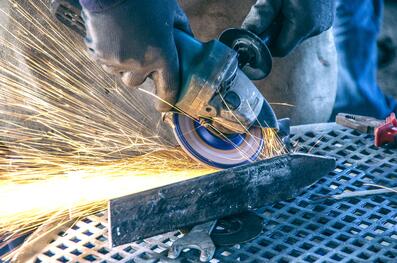Small-to-medium-sized job shops have been the core of the metal fabrication industry since its inception. But these shops face increasingly fierce competition from larger, multi-service vendors if they haven’t already joined a manufacturing conglomerate themselves. From price to sheer convenience, multi-service manufacturing organizations come with a fair share of inherent advantages that make them attractive to companies looking to outsource a significant portion, if not all, of their product manufacturing. This post will take a look at some of the primary benefits partnering with a multi-service manufacturer brings.
Small-to-medium-sized job shops have been the core of the metal fabrication industry since its inception. But these shops face increasingly fierce competition from larger, multi-service vendors if they haven’t already joined a manufacturing conglomerate themselves. From price to sheer convenience, multi-service manufacturing organizations come with a fair share of inherent advantages that make them attractive to companies looking to outsource a significant portion, if not all, of their product manufacturing. This post will take a look at some of the primary benefits partnering with a multi-service manufacturer brings.
Reducing Points of Contact and Logistics
Managing a tangled web of individual job shops can be strenuous on the manufacturing process in multiple ways:
- Managing the financials and contractual obligations with so many different partners is not only more upfront work, but creates unnecessary levels of risk if any partner doesn’t hold up their end of the bargain.
- Maintaining more points of contact raises the difficulty of communicating changes in the manufacturing process or keeping partners accountable.
- Logistically, parts must be constantly shipped from one shop to another, increasing costs, risks of delays and risks of damages. One break of a link in the manufacturing chain can compromise a project.
With all major services consolidated together, a multi-service vendor reduces points of contact, required contracts and logistical costs. Pricing can be more easily negotiated and abrupt changes to the manufacturing will be taken into account.
Capacity, Synergized Services and Supporting Staff

If more production is required over time, a multi-service manufacturer is more likely to have the capacity to handle the long-term scaling of a project. More importantly, a multi-service metal fabricator’s movement of parts from service to service is going to resemble a well-oiled machine. With overall communication, risk management and project management under one roof, a network of job shops simply cannot match the synergy of services a multi-service manufacturer provides. The machining department can machine post-weld parts immediately after the execution of a customized weld. Meanwhile, the welder will know what to expect of their laser and plasma cutting department’s quality of work and can approach their tasks more efficiently. If problems arise or tweaks are required in the process, risk management can quickly pinpoint and resolve issues spanning the entire lifecycle of part, not just one department’s work. Departments are not working in a vacuum, and this pays tremendous dividends in quality and efficiency of production.
Coating, Assembly and “Cradle-to-Grave” Manufacturing
Though not a capability of every multi-service manufacturer, coating and assembly are services often left to individual job shops out of necessity. Taking advantage of coating and assembly services provided by the manufacturer can save significant time, money and unnecessary effort arranging more outsourced services. The “cradle-to-grave” potential of a multi-service vendor cannot be understated. The ability for select manufacturers to produce a product from a raw state to final assembly with coating gives substantially more power to the OEMs and manufacturing outsourcers. Not only does this save time and cost, it gives companies more control over their final products outside of manufacturing in-house.
Convenience and Quality in One Package
Choosing a multi-service metal fabricator makes sense on many fronts and can save OEMs and outsourcing companies considerable hassle. While there is some inherent risk in placing your eggs in fewer baskets, due diligence in finding the right partner can mitigate this risk. The benefits of a multi-service vendor — facilitated logistics, less points of contact, tighter tolerances, faster production, etc. — makes the “cradle-to-grave” manufacturer a lucrative option.